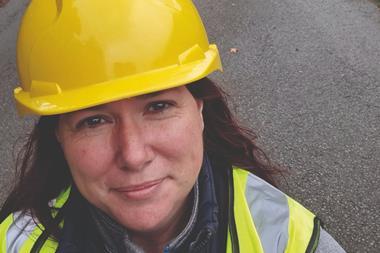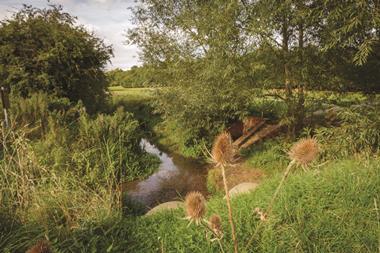How technology will change the way we live and work has been a key feature of speculation this past week.

It stands to reason as the pandemic has accelerated the use of technology so that all but the most determined Luddites now accept that every stage of the real estate cycle can be streamlined by the adoption of technology. Strangely though, our government’s approach to Covid-19 track and trace seems to involve a manual approach rather than the app we were expecting.
I was delighted to chair a roundtable debate as part of an excellent series of BPF and UKPA events. This session was designed to identify the many pain points in residential buying and selling. It had the great title ‘Defence Against the Dark Arts: how to improve the house-buying and selling process’ and involved a top group of property companies, agents, advisers and proptech companies. Inconveniently, my zoom chose the appointed start time to become totally unresponsive and I had visions of not being able to connect at all. I got there eventually and we had a lively and constructive discussion, which will be encapsulated in the write up coming shortly. There was a parallel session on the commercial real estate process so it will be interesting to compare the two.
Also relevant to the topic of the roundtable was the press announcement from San Francisco based start-up States Title that they had secured $123 million of funding for faster mortgage completions. States Title is a technology-driven solution for closing mortgages, which is something we could benefit from in the UK. I caught up with Fifth Wall VC Fund MD, Roelof Opperman who commented that the ultimate goal is ‘the holy grail of the one click close.’ This would mean being able to view a property on line and simply ‘hit buy.’ The valuation, title insurance and mortgage would all be automated. ’Why should buying a house be so much more difficult than buying a car’ he remarked. A good question!

This week was also the first meeting of the BPF Technology and Innovation Group since lockdown began so there was some fascinating discussion amongst this expert group particularly on the protocols and arrangements being put in place in anticipation of a return to work. Unlike China where the government set in place regulations to be followed, in the UK, individual property owners have to make their own decisions regarding such things as thermal imaging, facial recognition and sanitization and ensure that they communicate closely with their occupiers. The acceleration of the use of technology resulting from the Covid-19 lockdown means the group is going to be busy.
Despite getting to the end of the second month of lockdown, I am continuing to meet new contacts. One of these is Dominic Collins a founder of Darabase, a London based start-up who are building a property registry and technology platform to help property companies mitigate risks and monetise location-based Augmented Reality (AR). They gave me a preview of MonitAR, their new property monitoring tool. As they explain it, ‘millions of people are now experiencing AR every day, using their mobile camera to see digital content layered on the physical world. As well as “selfie facing” lenses on apps like Snapchat, Facebook and Instagram, AR is increasingly “world facing”, with digital content being displayed on buildings and locations in apps. Property owners may be blissfully unaware of AR activity around their buildings as it is invisible (unless they are using the right game or application!). Equally, they could be missing an opportunity to leverage the AR users in their area.
In my role as podcast host, I have got rather used to being the interrogator, but this week the tables were well and truly turned! I had the experience of being interviewed by Caleb Parker for his #workbold podcast series. I feel very flattered to have been asked and really quite enjoyed being in the hot seat for once. I know I am in good company as the very first #workbold podcast guest was tech guru Antony Slumbers.
Finally, despite the acknowledged acceleration in the adoption of new technology, we are also seeing elements of regression. We are being encouraged to abandon our cars and public transport and go back to cycling and walking. Another retro step that I hadn’t considered as a real possibility is the resurgence of the terrifying paternoster lift, which was the bain of my university life. For the uninitiated, it is a passenger lift consisting of a chain of single open compartments that move slowly in a loop up and down inside a building. You have to jump in and out of the moving lift, so lots of margin for error! UK architecture studio The Manser Practice has outlined how hotels will adapt to allow social distancing when they reopen and anticipates the return to favour of the dreaded paternoster lift.
Susan Freeman is a partner at Mishcon de Reya
Related blogs by Susan Freeman:
- Propertyshe perspectives: our new reality, climate change and the Mipim editor’s dinner
































No comments yet